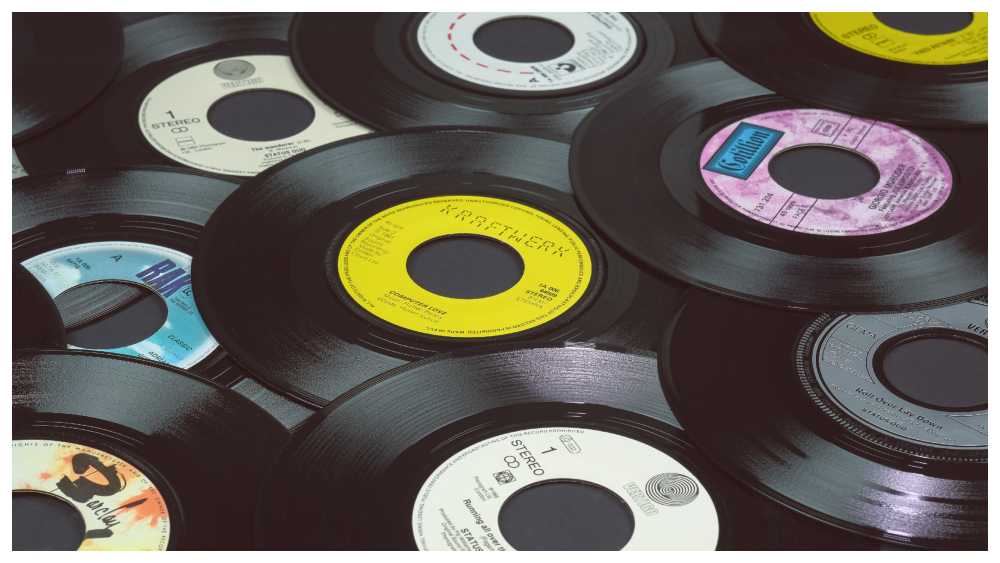Although it’s widely acknowledged that streaming services have played a large role in the financial recovery of the music business over the last decade, a recent report commissioned by the BPI claims that the industry’s relationship with these platforms has grown far closer than many could have predicted.
Entitled Magic Numbers – How Can Data and Analytics Really Help the Music Industry, it states that beside financial growth, the greatest asset streaming has provided is actually the data it collects, and this data is revolutionising the way the music industry operates entirely, all the way down to the songwriting process.
Eammon Forde, author of the report, told M: ‘I think everybody knows that if you don’t understand data then you don’t understand the modern music industry. There’s all these clichés about data: it’s the new gold, it’s the new oil, it’s all these things, but you could argue that data is the new politics. It’s going to define the future economic state of the music industry.’
These implications are being felt in the creative facets of the industry, perhaps most evidently by songwriters, composers and artists, who are being given new insights into the way their music is consumed and are acting accordingly.
‘From a musician’s perspective, it gives them accurate, up-to-the-minute information about how fans are reacting to their music, so they can compare and adjust their strategies depending on what is performing well,’ said Lee Parsons, chief executive of global distribution service Ditto Music.
‘This approach influences the way artists create and develop their tracks, making them more aware of getting to the hook or chorus quickly to grab the attention of playlisters. Streaming data has become one of – if not the biggest – factor when it comes to emerging artists getting scouted and invested in by labels.’
It’s long been established that a short, sweet pop track, which doesn’t waste time hitting the chorus, will do well on the radio. But the difference here is the way in which streaming data research is now motivating the creative decision, and genres like jazz and classical are straying drastically from their norms to fit this convention.
Thomas Steffens, chief executive of Primephonic, a streaming platform created to service classical music, explained: ‘Most streaming services pay out royalties based on how often an artist’s songs have been streamed. For pop music that is fair, since most pop songs last about three minutes. But classical and jazz songs typically last 10 minutes or more, sometimes even an hour. In other words, pop music gets much higher royalties for one hour of streaming than classical and jazz get.
‘As a result, classical artists have an incentive to record shorter works. Composers also have an incentive to compose shorter works. Some classical labels told us that they indeed focus on shorter works.’
And this is something echoed by Paul Smith, director of A&R at Warner/Chappell: ‘Spotify is built around the pop song, and when you have these long classical movements it’s very difficult to fit into that mould.
‘There are certain artists we’ve been talking to who are structuring their music completely around three-minute pop songs and now consider themselves pop artists, even though they’re classical artists.
He added: ‘Data will lead the industry to a certain level, but the crux of what we’re talking about here is the quality of the music, and as long as the music is still relevant and it’s still good quality then the two can fit quite nicely together.’
Not so long ago the music industry suffered huge losses, exemplified by the US music market’s annual overall revenue falling from $14.6bn (£11.3bn) in 1999 to $6.3bn in 2009.
But shortly after what many felt would be the death of the traditional music business, Universal Music Group posted revenues of over $5bn, attributing $1bn to music streaming. Earlier this year, it was announced that revenue from music streaming had surpassed that of traditional platforms.
It’s no wonder that, as streaming becomes one of the main generators of revenue in the business, artists are tailoring their approach to succeed on streaming platforms. But Forde warned that basing any strategy around data analytics may be the wrong approach: ‘It’s about refinement: the smart use of data will refine and support a good decision, but it will also accelerate a bad decision.
‘It’s just another tool in the marketing armoury, but if it becomes the only thing it’s dangerous. Data should be in the checklist, but if it becomes the entire checklist you’re in trouble.’
Entitled Magic Numbers – How Can Data and Analytics Really Help the Music Industry, it states that beside financial growth, the greatest asset streaming has provided is actually the data it collects, and this data is revolutionising the way the music industry operates entirely, all the way down to the songwriting process.
Eammon Forde, author of the report, told M: ‘I think everybody knows that if you don’t understand data then you don’t understand the modern music industry. There’s all these clichés about data: it’s the new gold, it’s the new oil, it’s all these things, but you could argue that data is the new politics. It’s going to define the future economic state of the music industry.’
These implications are being felt in the creative facets of the industry, perhaps most evidently by songwriters, composers and artists, who are being given new insights into the way their music is consumed and are acting accordingly.
‘From a musician’s perspective, it gives them accurate, up-to-the-minute information about how fans are reacting to their music, so they can compare and adjust their strategies depending on what is performing well,’ said Lee Parsons, chief executive of global distribution service Ditto Music.
‘This approach influences the way artists create and develop their tracks, making them more aware of getting to the hook or chorus quickly to grab the attention of playlisters. Streaming data has become one of – if not the biggest – factor when it comes to emerging artists getting scouted and invested in by labels.’
It’s long been established that a short, sweet pop track, which doesn’t waste time hitting the chorus, will do well on the radio. But the difference here is the way in which streaming data research is now motivating the creative decision, and genres like jazz and classical are straying drastically from their norms to fit this convention.
Thomas Steffens, chief executive of Primephonic, a streaming platform created to service classical music, explained: ‘Most streaming services pay out royalties based on how often an artist’s songs have been streamed. For pop music that is fair, since most pop songs last about three minutes. But classical and jazz songs typically last 10 minutes or more, sometimes even an hour. In other words, pop music gets much higher royalties for one hour of streaming than classical and jazz get.
‘As a result, classical artists have an incentive to record shorter works. Composers also have an incentive to compose shorter works. Some classical labels told us that they indeed focus on shorter works.’
And this is something echoed by Paul Smith, director of A&R at Warner/Chappell: ‘Spotify is built around the pop song, and when you have these long classical movements it’s very difficult to fit into that mould.
‘There are certain artists we’ve been talking to who are structuring their music completely around three-minute pop songs and now consider themselves pop artists, even though they’re classical artists.
He added: ‘Data will lead the industry to a certain level, but the crux of what we’re talking about here is the quality of the music, and as long as the music is still relevant and it’s still good quality then the two can fit quite nicely together.’
Not so long ago the music industry suffered huge losses, exemplified by the US music market’s annual overall revenue falling from $14.6bn (£11.3bn) in 1999 to $6.3bn in 2009.
But shortly after what many felt would be the death of the traditional music business, Universal Music Group posted revenues of over $5bn, attributing $1bn to music streaming. Earlier this year, it was announced that revenue from music streaming had surpassed that of traditional platforms.
It’s no wonder that, as streaming becomes one of the main generators of revenue in the business, artists are tailoring their approach to succeed on streaming platforms. But Forde warned that basing any strategy around data analytics may be the wrong approach: ‘It’s about refinement: the smart use of data will refine and support a good decision, but it will also accelerate a bad decision.
‘It’s just another tool in the marketing armoury, but if it becomes the only thing it’s dangerous. Data should be in the checklist, but if it becomes the entire checklist you’re in trouble.’

.ashx?h=67&w=80&la=en&hash=340524FD746527338490DF251ABF8B71)



